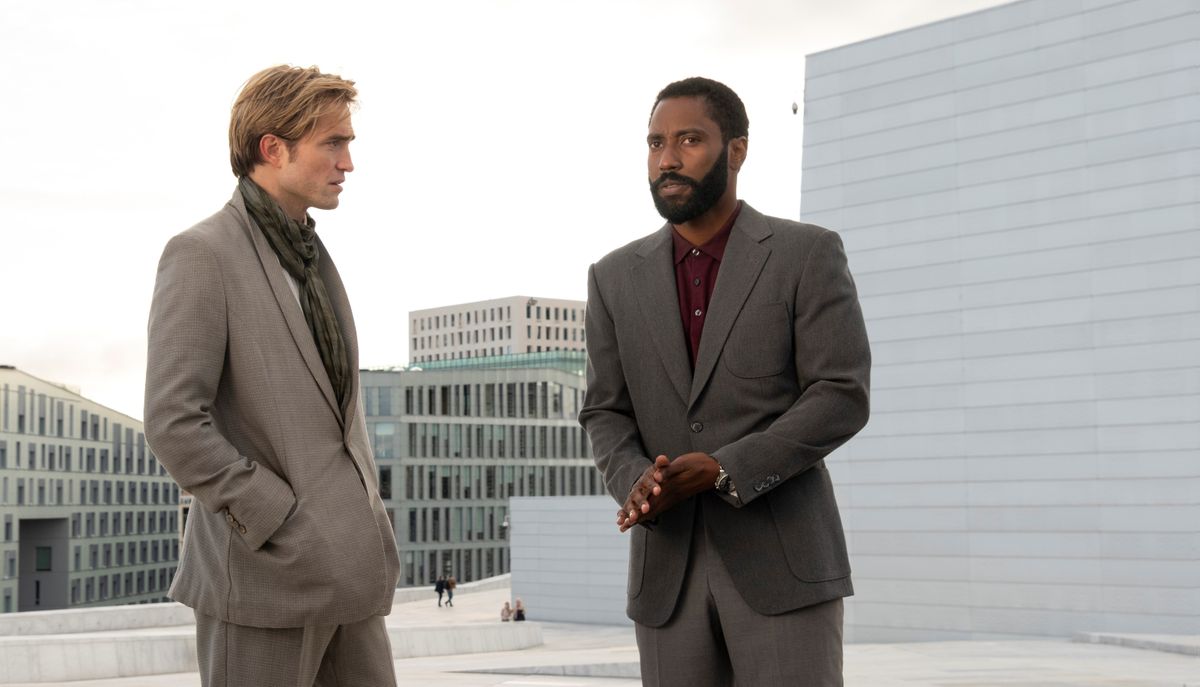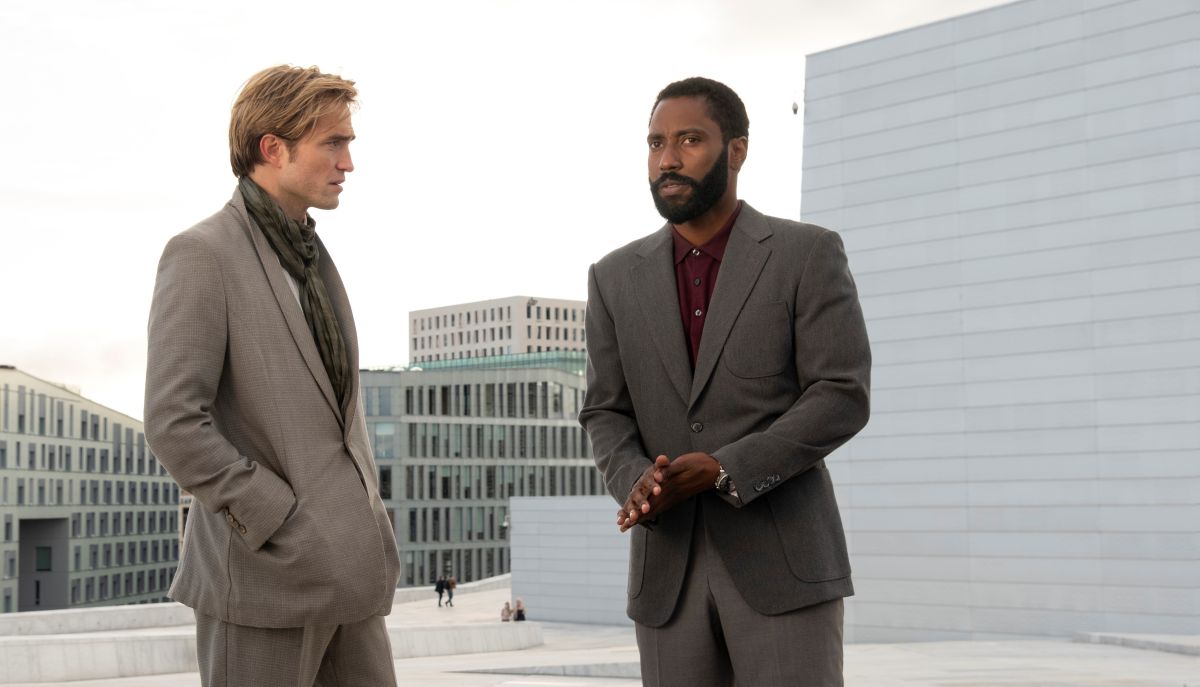
There are very few directors working today whose new films are events simply because they made them, and no such list would be complete without the inclusion of Christopher Nolan.
The British filmmaker has earned his reputation for making cerebral blockbusters many times over, and while some of his efforts may be divisive, you can never fault him for lack of ambition. With his latest brain-twister, Tenet, now playing in theaters (in most places, anyway), now’s as good a time as any to rank his impressive filmography.
11. Following
[embedded content]
Nolan’s black and white debut is both his shortest movie – it’s just 69 minutes long – and a blueprint of sorts for the tropes that would go on to become hallmarks in his latter movies. Starring Jeremy Theobald as a young, unemployed writer who finds himself partnering up with a slick thief (Alex Haw), it features a fractured narrative, a big twist, and an intense score by David Julyan, Nolan’s go-to composer pre-Hans Zimmer. Along with an easy-to-spot Batman Easter egg, these were early signs that the fledgling filmmaker was destined for great things.
10. Interstellar
[embedded content]
Nolan’s first film after wrapping up the Dark Knight trilogy saw him trying to merge the theme of love with theoretical physics, to mixed results. Matthew McConaughey shines as an astronaut sent through a wormhole to find a new home for humanity, and there are strong supporting turns from Jessica Chastain, Anne Hathaway, and Matt Damon (who needs saving after being deserted on an alien planet – which would happen again in The Martian). But while the visuals are among the most striking in Nolan’s oeuvre, the confusing plot is not nearly as satisfying, and the frustrating conclusion dilutes what little emotional heart there is. At least we’ll always have that meme.
9. Dunkirk
[embedded content]
There are few better examples of the pros and cons of a Christopher Nolan movie than Dunkirk. On the one hand, we get expertly realized action sequences you’d expect from a blockbuster war movie alongside a stirring tick-tick-ticking score from Hans Zimmer. On the other, it’s yet another Nolan film with a confusing structure, the three distinct timelines serving to diminish rather than augment the experience. The result is a film that’s always visually and technically impressive – the desperation of the soldiers is palpable from the get-go – but rarely emotionally engaging.
8. Tenet
[embedded content]
When the trailers for Tenet arrived online, nobody on the internet had a clue what it was about. That bewilderment remains true of the final movie, which has John David Washington’s Protagonist teaming up with Batman-to-be Robert Pattinson to save the world from Kenneth Branagh’s thick Russian accent by moving backwards through time. The specifics of the plot are frequently baffling, and it’s not helped by a sound mix that makes it hard to hear a lot of important dialogue. But the impressively practical and inventive action sequences are cleverly shot, and Pattinson and Washington’s chemistry is fun to watch.
7. The Dark Knight Rises
[embedded content]
Third movies in superhero trilogies are hard, and not even Nolan was able to fully escape that curse with The Dark Knight Rises. It’s just a little too bloated and overstuffed for its own good, with a statement on Occupy Wall Street that doesn’t hold up. Still, Tom Hardy’s imposing Bane spawned many memes and inspired many more bad impressions, and Anne Hathaway’s charming Catwoman was another consistent highlight. Factor in the multiple impressive set pieces – including a bravura opening plane heist and a brutal showdown between hero and villain – and there’s still plenty to like here.
6. Insomnia
[embedded content]
Nolan’s audiovisual hallmarks are present and accounted for in each of his movies, but Insomnia is where they’re at their most muted. That may be because it’s both a remake and the only film Nolan didn’t write himself. Still, it features a great performance from Al Pacino as an LAPD detective haunted by guilt in pursuit of a creepy killer (Robin Williams excelling in a dramatic role), and the more fatigued our protagonist gets, the more the Nolan-esque themes begin to emerge. Add that to the fact that this is the easiest non-Batman film to follow in Nolan’s filmography, and Insomnia is not to be slept on.
5. Memento
[embedded content]
It’s been 20 years since Memento first debuted in cinemas, and there hasn’t been anything quite like it ever since. It was only Nolan’s second feature, but the story an insurance investigator named Leonard (Guy Pearce) who is attempting to find his wife’s killer while battling short term memory loss revealed a filmmaker who was already wholly confident in his abilities. You come for the performances from the superb ensemble cast – Carrie Anne-Moss’s femme fatale is especially memorable – but you stay and rewatch for the ingenious puzzle.
4. Batman Begins
[embedded content]
After 1997’s deservedly derided Batman & Robin, Gotham’s infamous hero was in dire need of big screen rehabilitation. Thankfully, Christopher Nolan is just what the doctor ordered: the gritty and grounded origin tale is by turns exciting, lightly humorous (“Didn’t you get the memo?”), and thematically satisfying. Not only can its influence can be seen in many a comic book movie that came after it, but the perfect final minute is perhaps the greatest ever ending to any superhero movie, period. It all amounts to the best live-action movie about Batman…
3. The Dark Knight
[embedded content]
…But The Dark Knight is the best live-action movie that Batman is in. It’s an important distinction: Batman Begins’ focus was entirely on Bruce Wayne, but Nolan’s sequel is dominated by the Joker. That’s no bad thing, as Heath Ledger’s Oscar-winning performance has rightfully gone down in history as the greatest the genre has ever seen.
It’s not just that that makes The Dark Knight a classic, though: the action is cooler (the birth of the batpod!), its set pieces are iconic (Joker’s bank heist, the truck-flip in the chase sequence), and Hans Zimmer and James Newton Howard’s score is as powerful as it is emotional. Simply put, superhero movies don’t come much better than this.
2. Inception
[embedded content]
Inception is exhibit A when it comes to original and cerebral blockbuster filmmaking. In a sense, that’s literal (the logline is ‘a heist thriller set within the architecture of the mind’), but this is a movie that gets more entertaining as it gets more complicated.
That’s partially because Nolan gradually eases you into the concepts of Inception’s world so you understand just enough about the mechanics of dream thievery before things get really crazy. But it’s also because the visuals and action set pieces are jaw-dropping in their conception and execution. This was also the movie that popularized Hans Zimmer’s dramatic “Braaams” and introduced us to the composer’s finest work in ‘Time’, and that’s no small thing.
1. The Prestige
[embedded content]
Here’s the thing about Christopher Nolan… He is very clever. At times, his cleverness gets in the way of a good story.
The Prestige is what a film looks like when Nolan’s smarts augment a narrative rather than subtract from it, as the game of oneupmanship between Hugh Jackman and Christian Bale’s warring magicians becomes more and more personal. It’s a film that you want to watch again and again, not because you need to in order to understand what’s going on (here’s looking at you, Tenet) but because of the clever, hard-to-spot details that you may have missed on first watch. It’s one of the best performances of Jackman’s career, it’s the most emotionally satisfying movie in Nolan’s filmography to date, and it features the late, great David Bowie as Nikola Tesla. ‘Nuff said.
